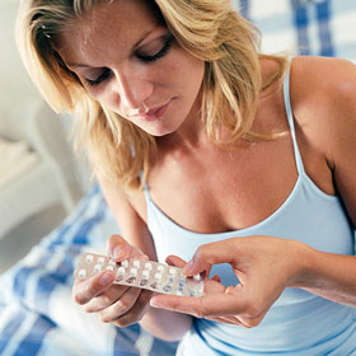Forming and maintaining relationships are an important part of life. Being in a relationship with your partner sometimes involves being sexually active.

Having a transplant does not directly affect your experience of sex, but if your new organ isn’t working well, you might have less energy. This can interfere with your desire for sex.
If you decide to have sex with someone, make sure it is always your choice and not something you do because you feel you have to.
Long before you plan to have sex with someone else, take time to figure out for yourself what you like. Sexual fantasies are a safe way to try out different sexual experiences. Masturbation can also help people figure out what they enjoy and can be a great pain reliever.
Sometimes people with kidney or liver transplants worry that having sex might damage their new organ. You don’t have to worry about this, but if a position is uncomfortable for any reason, try something else instead.
It may be hard to believe, but you can ask your doctor, nurse or social worker about sex. But if you’d rather talk with someone who isn’t providing your transplant care, you can ask for a referral to an adolescent health specialist.
If you are considering having sex, it's worthing informing yourself about:
Sexually transmitted infections
Sexually transmitted infections (STIs) are infections that are spread from person to person during intimate contact. This includes skin-to-skin contact and contact through the mouth and genitals.
STIs can affect anyone of any age or background. They can be spread between a male and a female, between two males or between two females.
The most common way to get an STI is through vaginal or anal sex without a condom or through oral sex. Some STIs can be cured, but others may stay in your body forever.
An STI can make you very sick, especially because you are already taking anti-rejection medications. Always be extra careful about doing anything that could lead to an STI.
One type of STI is the human papilloma virus (HPV). This causes genital warts and cervical cancer. The anti-rejection medications you take after your transplant make it much harder to get rid of genital warts and are also thought to raise your risk of developing cancer from HPV.
Luckily, you can now be vaccinated against HPV. It’s best to get your shot before your transplant, but it is still strongly advised after transplant. Many schools offer the HPV vaccine in Grades 7 or 8. You can also ask a doctor or nurse to help you get help you get this shot.
Protecting yourself against STIs
If you are going to have sex, understand how to protect yourself from STIs.
- Always use a condom. Other forms of birth control, such as the pill or an intra-uterine device (IUD), do not prevent STIs. It is your responsibility to make sure you are protected.
- Use a latex condom. If you are allergic to latex, condoms made from polyurethane or polyethylene are available. These protect you just as well, but they cost a little more. Polyurethane condoms can make a squeaky sound, but don’t let that stop you from protecting your health and that of your partner.
- Always use lots of lubrication with a condom, but avoid oil-based lubricants such as Vaseline if your condoms are latex.
- If you are going to engage in anal sex, understand that it is the riskiest kind of sex you can have due to the possibility of bleeding.
- The more sexual partners you have, the more likely it is that you will come in contact with someone who has an STI. Before deciding to have sex with someone, ask about their sexual history.
- If you are drunk or on drugs, you will find it hard to make healthy decisions about sex. Make a deal with a friend to keep an eye on you at parties or other situations where you might be drinking alcohol or doing drugs.
- If you have had sex or are planning on it, ask for regular STI tests. Regular tests give the best opportunity to check for STIs while they're still in their earliest, most treatable stages. You can also use the regular tests as a way to learn about STIs and protecting yourself.
- Girls and women with a transplant need to have Pap smears more often. We suggest that you have a Pap smear once a year as soon as you are sexually active.
- You can find a local public health or Planned Parenthood clinic in your area where you can get tests confidentially if you don’t want to go to your family doctor (or if you don’t have one).
For more information on STIs, check out Go Ask Alice.

Birth control
If you choose to have sex, there are many effective forms of birth control to choose from, even with your transplant.
Hormone-based birth control
Some hormone-based forms of birth control, such as the pill, the patch or the ring, contain a combination of estrogen and progesterone. Others contain only progesterone, for example the mini-pill, progesterone injections or Mirena, the intrauterine device (IUD) most commonly used by young people. This IUD is inserted by a doctor into the uterus, is filled with progesterone and can stay in for up to five years. It works better than any other form of birth control.
Emergency contraception, also called the “morning-after pill”, is usually progesterone only. To prevent a pregnancy, it must be taken as soon as possible after unprotected sex. You can take it up to five days after intercourse, but the sooner you take it, the better it will work. You can get the morning-after pill in Canada at drugstores without a prescription.
We suggest you ask your transplant team for advice if you are thinking of continuing with – or starting – contraception that contains estrogen after your transplant.
If you are on birth control that contains estrogen, you will usually need to stop it at the time of your transplant.
If you are starting birth control after your transplant, most transplant doctors prefer you to wait until your medicine doses are lower before going on estrogen.
If you had a kidney transplant and it failed because of blood clotting, you will probably be asked to choose contraception that does not contain estrogen.
Remember that hormone-based birth control only protects against pregnancy. It does not prevent sexually transmitted infections (STIs).
Barrier method
Most young people who use barrier methods of birth control use condoms. It is best to use these with spermicides (chemicals that kill sperm). You can get spermicide as a small sponge, a foam or a gel without prescription. But even with spermicide, barrier methods are less effective at preventing pregnancy than hormone-based birth control.
Condoms are the only form of birth control that help prevent STIs.
Speak with your health care practitioner to help you decide which type of birth control is best for you and your partner. Ideally you and your partner should use hormone-based birth control and a condom.
To learn more about each of these forms of birth control check out Go Ask Alice.
Having a baby
If you want to have a baby, plan it carefully. Ideally, females should take special vitamins for at least six months before getting pregnant.
The decision to have a baby needs to be made not just by yourself and your partner but with your healthcare team. This is because some of your medications might cause problems for your baby while it is developing.
You also need to think about all the responsibilities that go along with parenting and whether it might be better to wait until a while after your transplant for this big life change.






